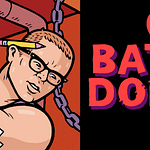Voice Of GO(r)D brings you a deep and dark conversation, hot on the heels of the UK Parliament passing an assisted dying law through second reading, between Canadian MAID critic Amanda Achtman, and Jeff Shafer, an American lawyer and scholar who has been investigating developments in legal language which have been used to justify the commercial expansion of Assisted Reproductive Technology (ART) beyond merely helping those who have trouble conceiving a child.
The conversation is a pretty serious examination of how The Machine applies its twisted logic to the beginning and end of life, and offers us a glimpse in to how we might resist these developments and conserve what humanity we have left in 2024.
From Amanda’s bio on her great website, Dying To Meet You -
Amanda Achtman was born and raised in Calgary, Alberta, with mountains, cowboys, and entrepreneurs for inspiration. She studied liberal arts and political theory in her hometown. After making a viral political parody video, she moved to Toronto to do a mix of journalism, crowdfunding, and advocacy in defense of Canadians' fundamental freedoms.
Living the alternation between action and contemplation, she then went to Poland to pursue a master's degree in John Paul II Philosophical Studies. Upon returning to Canada, she served as the senior advisor to a member of parliament working to prevent the expansion of euthanasia to persons living with a disability or mental illness.
Recently, Amanda lived in Rome where she studied the resurrection of the dead throughout Jewish tradition in a Licentiate Program in Judaic Studies and Jewish-Christian Relations offered by the Pontifical Gregorian University.
Amanda works with Canadian Physicians for Life on ethics education and cultural engagement. She is a 2023-2024 NextGEN Fellow at Cardus and a 2023-2024 Krauthammer Fellow at the Tikvah Fund.
Determined to protect human life, Amanda's current priority is preventing euthanasia and encouraging hope through the Dying to Meet You Project.
Amanda’s voluminous writing on euthanasia and much else can also be found on Dying To Meet You - https://www.dyingtomeetyou.com/speaking-and-writing
You can also follow Amanda on Twitter - https://x.com/AmandaAchtman
From Jeff’s bio at the Hale Institute at New Saint Andrews College
Jeff Shafer is Director of the Hale Institute. He graduated with honors from the Regent University School of Law in 1995. Early in his legal career, he operated a general practice firm in Cincinnati with a particular emphasis on criminal defense litigation. Thereafter, he practiced in a law partnership, focusing on elections law and civil constitutional cases. From 2005 to 2020, he served as Senior Counsel with Alliance Defending Freedom at its Washington, D.C., and Scottsdale, Arizona offices. Mr. Shafer has litigated public interest cases in federal and state trial and appellate courts throughout the United States, as well as developing academic and advocacy initiatives on matters of policy concern. Outside of the courtroom, he has addressed a wide array of audiences in academic and community venues, in the US and abroad, on matters of legal and cultural interest.
You can read a transcript of Jeff’s oral presentation ‘Machine Antihumanism and the Inversion of Family Law’ below at the Substack of the great
or the great investigator of our current globalized machine regime,
Jeff also wrote a pretty deep critique of the international surrogacy market at the Humanum Review - https://humanumreview.com/articles/producing-the-global-baby
Friend and colleague Ashley Frawley wrote a pretty scathing critique of the MAID program for our friends at Compact Magazine -
https://www.compactmag.com/article/assisted-dying-isnt-freedom/
Assisted dying is the quintessential policy of our times. It is a policy that reflects the fatalistic mindset of those who rule over us, leaders who can no longer promise a good life so instead offer a “good death.” Opponents of assisted dying in Canada and elsewhere have asked how a society can maintain a commitment to preventing suicide with one hand while enabling it with the other. The answer is that our society doesn’t actually value human life and so doesn’t oppose suicide. What it opposes is the lack of a bureaucratic process that oversees, controls, and administers suicide.
Another very interesting deep dive into ART and the fraught questions around what this says about our notions of humanity can be found at First Things by a fellow named Michael Hanby -
https://www.firstthings.com/article/2024/12/resist-the-conception-machine
The almost complete lack of reflection on the normalization of assisted reproductive technologies for producing children is a telling sign of the unseriousness of our age. The transformation of our typical thoughtlessness into an aggressive boosterism on behalf of these technologies is a more foreboding sign for the human future. Modern technology realizes a superhuman aspiration to project human power beyond a human scale. The ancients recognized the tragic irony inherent in such ambitions: In seeking to become more than human, we risk becoming less than human. It is essential to modern technology, as the superhuman magnification of human power, that our power should exceed our knowledge or our wisdom. We can do things—to the world, to ourselves, and to our posterity—that we do not know how to think about and cannot ultimately control.
Also mentioned in the show is the great body of research done by a group in Canada called Cardus. Their website hosts a deep collection of work on this subject which you can find here -
https://www.cardus.ca/research-library/?_sft_research-theme=maid-euthanasia
Of particular interest is their latest paper by Alexander Raikin
https://www.cardus.ca/research/health/reports/from-exceptional-to-routine/
The number of Canadians dying prematurely by “medical assistance in dying” (MAiD) has risen thirteenfold since legalization. In 2016, the number of people dying in this way was 1,018. In 2022, the last year for which data are available, the number was 13,241.
MAiD in Canada is the world’s fastest-growing assisted-dying program.
MAiD is now tied with cerebrovascular diseases as the fifth leading cause of death in Canada. Only deaths from cancer, heart disease, COVID-19, and accidents exceed the number of deaths from MAiD.
Assisted dying was not meant to become a routine way of dying. Court rulings stressed that it be a “stringently limited, carefully monitored system of exceptions.” Then Minister of Justice and Attorney General Jody Wilson-Raybould agreed: “We do not wish to promote premature death as a solution to all medical suffering.” The Canadian Medical Association likewise stated that MAiD was intended for rare situations.
MAiD assessors and providers do not treat it as a last resort. The percentage of MAiD requests that are denied continues to decline (currently it is 3.5 percent). MAiD requests can be assessed and provided in a single day.
Government departments and agencies continue to state that Canada’s MAiD experience is similar to that of other jurisdictions, that the rate of increase is expected, and that the growth is gradual. The data contradict these statements.
Health Canada has dramatically underestimated what a “steady state” of MAiD deaths would look like and how quickly Canada would reach the 4 percent threshold of total deaths. This threshold was reached in 2022, eleven years ahead of what Health Canada predicted only months earlier, and double its prediction just four years earlier.
Despite the importance of accurate vital statistics, some provinces’ death records do not record MAiD as a cause of death, instead recording the underlying condition that led to the MAiD request and subsequent death. Further, Health Canada reports on the number of MAiD deaths, but Statistics Canada does not consider MAiD a cause of death. These inconsistencies in reporting have an impact on research about MAiD and about causes of death more generally.
The systematic underestimation of MAiD in government statements and reporting is a serious impediment to understanding the scale of MAiD’s normalization in Canada and its abnormality with regard to other countries where some form of assisted dying is permitted.
For policymakers and the public to properly understand the Canadian reality, it is essential that government agencies collect consistent data and issue correct statements.
Jeff mentioned the philosopher J David Velleman and you can read a pdf of Velleman’s essay ‘Against The Right To Die’ below
Thank you for listening, and I hope you take the time to consider all of these concerns and arguments. I get the feeling that this presentation and the works listed above might produce a reactionary feeling on the part of some of my more progressive readers and listeners … which means you really ought to consider what’s going on here.
Questions, comments, suggestions, corrections and Hate Mail are always welcomed and strongly encouraged - gordilocks@protonmail.com
















Share this post